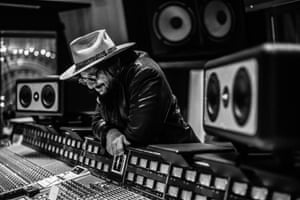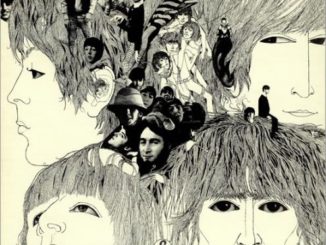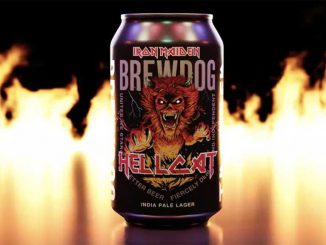[From The Guardian]
He’s the shamanic funk star who produced everyone from the Rolling Stones to Bob Dylan. Now, he is steering jazz’s most iconic label into the future – by embracing its ‘secret scene’
Journeyman” is a term often used to describe Don Was. At 66, the Detroit-born bassist and producer charted in the 1980s with his funk-fusion duo Was (Not Was), DJ’d at the legendary New York disco club Paradise Garage, and produced for Bonnie Raitt’s Grammy-winning Nick of Time in 1989, Bob Dylan’s Under the Red Sky the following year and multiple albums for the Rolling Stones, Iggy Pop, Elton John and many more. He even won a Grammy for best musical album for children with 2009’s Family Time – a collaboration with Ziggy Marley.
Now president of the label Blue Note – historically home to Miles Davis, John Coltrane and Thelonious Monk, as well as contemporary artists such as Robert Glasper – Was finds himself at the helm of the American jazz legacy, seeing the label through its 80th anniversary this year.
Fulfilling his shamanic aesthetic, Was imagines himself as a conduit. “Only work with people whose vision you trust,” he says. “If you don’t respect an artist enough to lose an argument to them, you shouldn’t be producing them.” As such, Was has always sought to work with his heroes, like Dylan, the Stones, and saxophonist Wayne Shorter. “The thing that unites them is that they understand the value of storytelling,” he says. “Even if you don’t have words, they are very eloquent. Especially with Wayne, he’s one of our greatest musical minds. In centuries to come, he’ll be right up there with Mozart – he’s plugged into a universal truth.”

And for Dylan and the Stones? “Dylan is a fucking genius – he was my hero and still is. I love the fact that even at this late stage in the game, every night he’ll approach a song from a fresh storytelling standpoint,” he says. “And when I first met the Stones, Mick was telling me they wanted a producer and Keith was saying they didn’t – at the same time. When you’ve got guys who are opposites in many ways, that just pulls the rubber band tighter so when you let go, it’s a bigger explosion.”
Was grew up in a Detroit still in its heyday of car manufacture and cultural production – home to Motown, the Detroit blues of the 1950s and a vast jazz scene, “a real jambalaya”. Was soon realised that many of the records he was drawn to were Blue Note releases, like Wayne Shorter’s Speak No Evil and Larry Young’s Unity. “I loved the record covers, those iconic black and white photos. These guys with cigarettes, saxophones, cool clothes, and I thought, ‘I wanna be in that room with them.’ I would ride a bus across town, going 45 minutes just to look at Unity once – I didn’t have the bread to buy it but I could hold it.”
Was feels this experimentation is key to the continuing relevance of jazz. “The first time I heard a jazz record, it was Mode for Joe by saxophonist Joe Henderson. He opened with these anguished cries, which really chimed with my own teenage angst, but then it slipped into this infectious swing,” he says. “I never lost sight of that anguish, that need to keep it fresh and push the boundaries.”
It wasn’t until 2012, when Blue Note was at risk of being closed down and turned into an archive-only label, that Was got his chance to take charge. “It was a total accident. I was having breakfast with an old friend who was president of Capitol Records, which headed up Blue Note, and I suggested they should sign Gregory Porter. I’d seen him the night before and he blew me away. I had no idea they were looking for someone to take over – anyone who’d walked in with an idea that day was going to get the job! I’d spent my life up to that point trying to avoid having a real job but this was too irresistible.”
In the seven years since Was took over, Blue Note has seen a resurgence in the vinyl industry, focusing efforts on audiophile releases of archive projects – a return to the tactile fascinations of Was’s bus trips – as well as signing new artists including R&B club producer Lophiile, drummer Kendrick Scott Oracle, and Joel Ross, a vibraphonist with “hip-hop swagger”.
“I hope jazz doesn’t become synonymous with pop again,” Was says. “Part of the fun of jazz is discovering this isolated, secret scene that is radically reflective of its time. That means it now encompasses the hip-hop work Kendrick Lamar is doing in LA with Kamasi Washington, and club culture here in London with people like Nubya Garcia and Steam Down.”
And is he still tapped into that ether? “Man, I don’t feel like I should be getting a lifetime achievement award – I still feel like a 20-year-old. There’s so much more to discover; once I feel on top of it, I’ll be dead.”
Collecting Jazz Vinyl Records or CDs? Explore the Jazz store here at eil.com where we have new arrivals nearly hourly!
eil.com – the world’s best online store for rare, collectable and out of print Vinyl Records, CDs & Music memorabilia since 1987




Be the first to comment